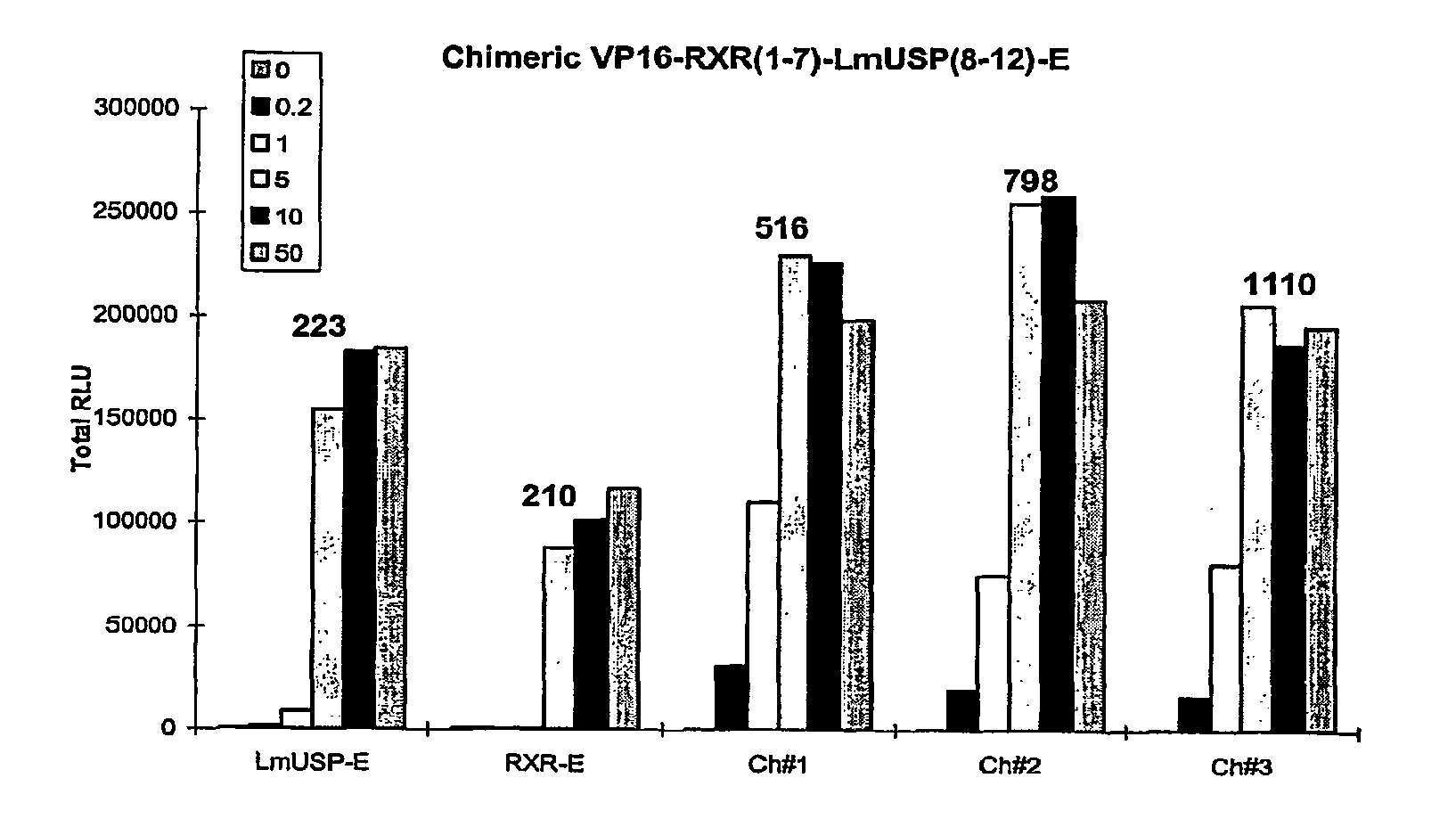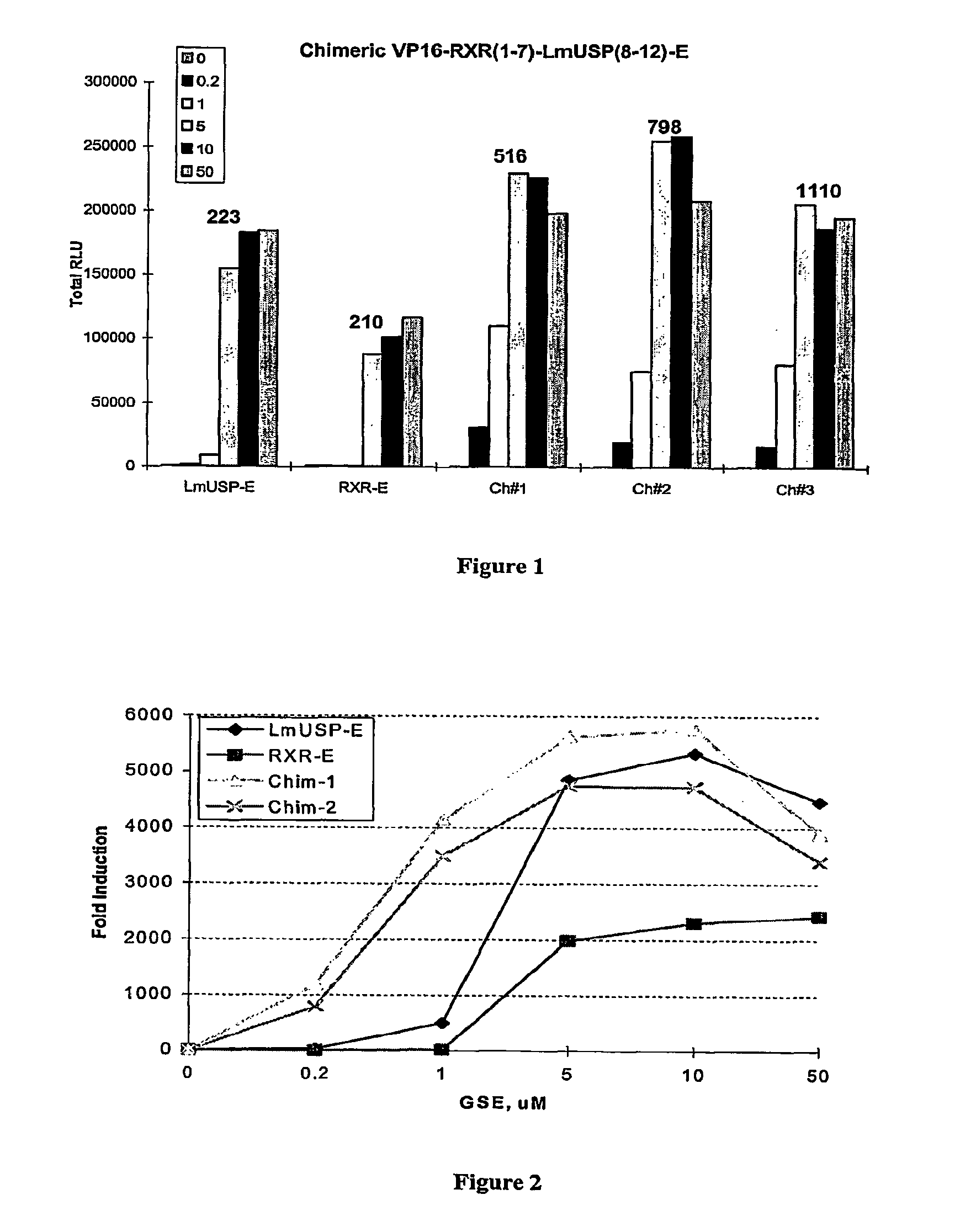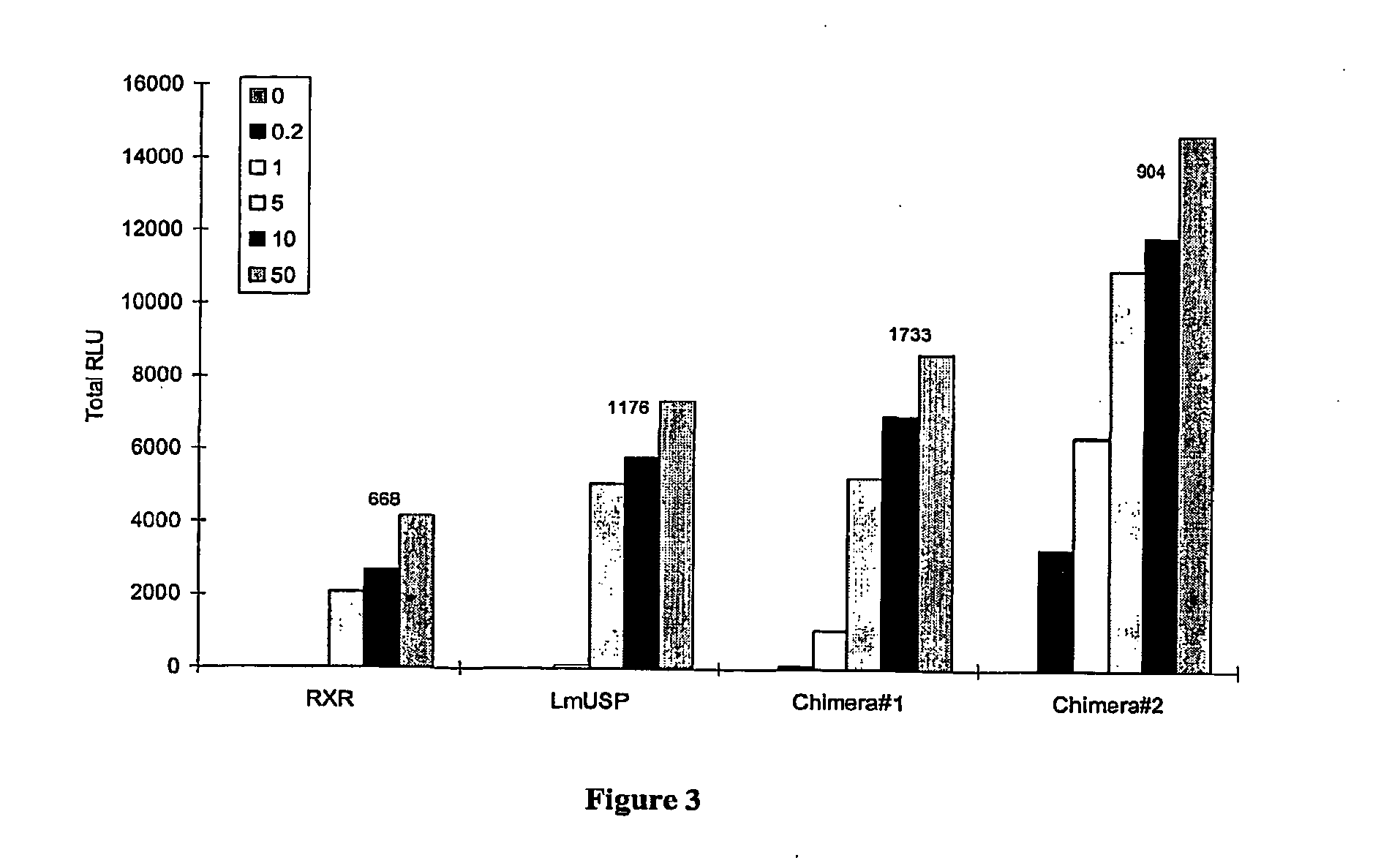Chimeric retinoid x receptors and their use in a novel ecdysone receptor-based inducible gene expression system
a technology of chimeric retinoid x receptor and gene expression system, which is applied in the field of biotechnology or genetic engineering, can solve the problems of system limitation, leakage of system, and limited use of pr1-a
- Summary
- Abstract
- Description
- Claims
- Application Information
AI Technical Summary
Benefits of technology
Problems solved by technology
Method used
Image
Examples
example 1
[0267]Applicants' EcR / chimeric RXR-based inducible gene expression modulation system is useful in various applications including gene therapy, expression of proteins of interest in host cells, production of transgenic organisms, and cell-based assays. Applicants have made the surprising discovery that a chimeric retinoid X receptor ligand binding domain can substitute for either parent RXR polypeptide and function inducibly in an EcR / chimeric RXR-based gene expression modulation system upon binding of ligand. In addition, the chimeric RXR polypeptide may also function better than either parent / donor RXR ligand binding domain. Applicants' surprising discovery and unexpected superior results provide a novel inducible gene expression system for bacterial, fungal, yeast, animal, and mammalian cell applications. This Example describes the construction of several gene expression cassettes for use in the EcR / chimeric RXR-based inducible gene expression system of the invention.
[0268]Applica...
example 2
[0305]Applicants have recently made the surprising discovery that invertebrate RXRs and their non-Lepidopteran and non-Dipteran RXR homologs can function similarly to or better than vertebrate RXRs in an ecdysone receptor-based inducible gene expression modulation system in both yeast and mammalian cells (U.S. provisional application Ser. No. 60 / 294,814). Indeed, Applicants have demonstrated that LmUSP is a better partner for CfEcR than mouse RXR in mammalian cells. Yet for most gene expression system applications, particularly those destined for mammalian cells, it is desirable to have a vertebrate RXR as a partner. To identify a minimum region of LmUSP required for this improvement, Applicants have constructed and analyzed vertebrate RXR / invertebrate RXR chimeras (referred to herein interchangeably as “chimeric RXR's” or “RXR chimeras”) in an EcR-based inducible gene expression modulation system. Briefly, gene induction potential (magnitude of induction) and ligand specificity and...
example 3
[0316]There are six amino acids in the C-terminal end of the LBD that are different between H x and LmUSP (see sequence alignments presented in FIG. 4). To verify if these six amino acids contribute to the differences observed between MmRXRα and LmUSP transactivation abilities, Applicants constructed RXR chimeras in which the C-terminal six amino acids, designated herein as the F domain, of one parent RXR were substituted for the F domain of the other parent RXR. Gene switches comprising LmUSP-EF fused to MmRXRα-F (VP16 / LmUSP-EF-MmRXRα-F, switch 1.6), MmRXRα-EF fused to LmUSP-F (VP16 / MmRXRαEF-LmUSP-F, switch 1.5), and MmRXRα-EF(1-7)-LmUSP-EF(8-12) fused to a MmRXRα-F (Chimera / RXR-F, switch 1.4) were constructed as described in Example 1. These constructs were transfected in NIH3T3 cells and transactivation potential was assayed in the presence of 0, 0.2, 1, and 10 μM N-(2-ethyl-3-methoxybenzoyl)N′-(3,5-dimethylbenzoyl)-N′-tert-butylhydrazine non-steroidal ligand. The F-domain chimer...
PUM
| Property | Measurement | Unit |
|---|---|---|
| Tm | aaaaa | aaaaa |
| Tm | aaaaa | aaaaa |
| Tm | aaaaa | aaaaa |
Abstract
Description
Claims
Application Information
 Login to View More
Login to View More - R&D
- Intellectual Property
- Life Sciences
- Materials
- Tech Scout
- Unparalleled Data Quality
- Higher Quality Content
- 60% Fewer Hallucinations
Browse by: Latest US Patents, China's latest patents, Technical Efficacy Thesaurus, Application Domain, Technology Topic, Popular Technical Reports.
© 2025 PatSnap. All rights reserved.Legal|Privacy policy|Modern Slavery Act Transparency Statement|Sitemap|About US| Contact US: help@patsnap.com



